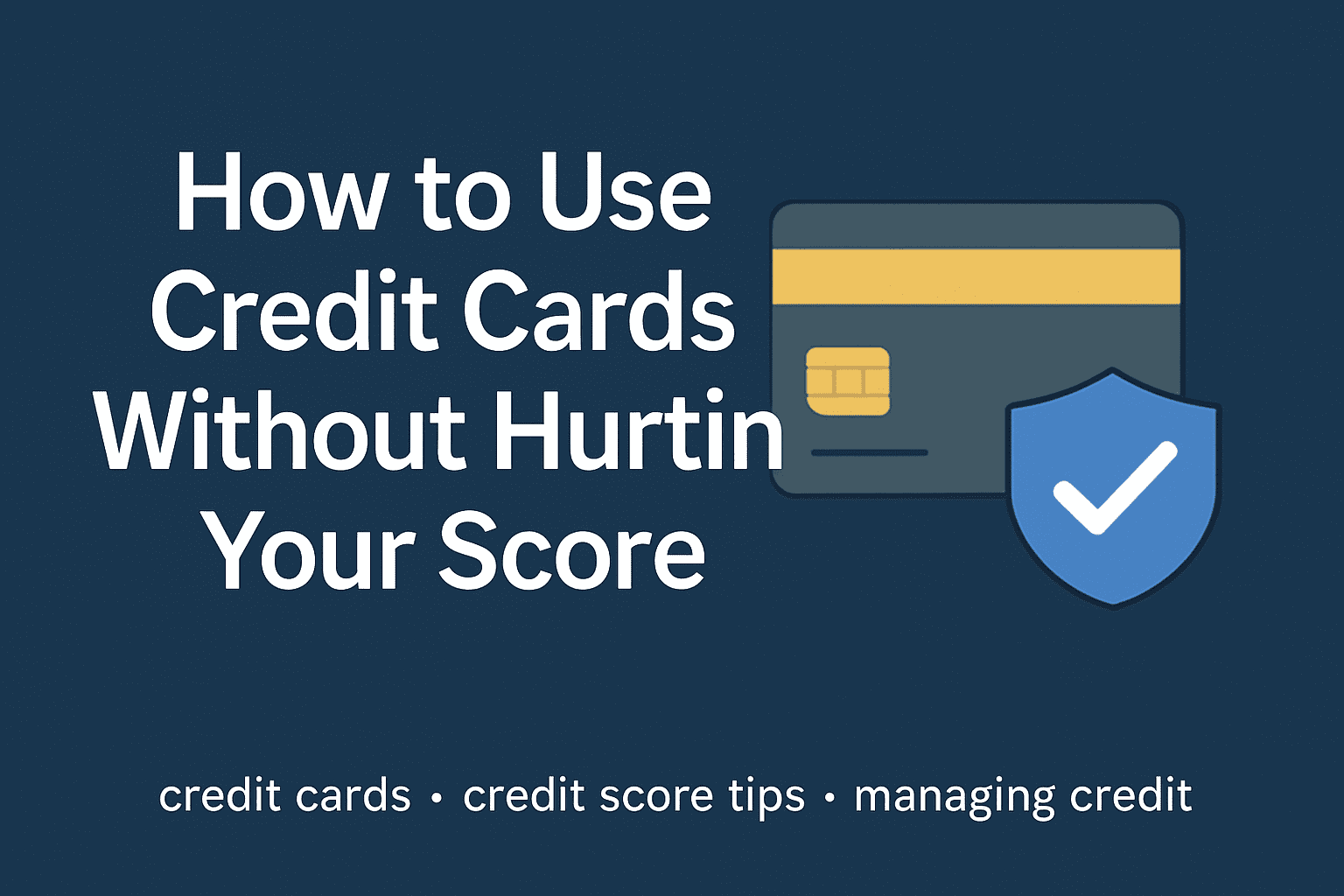How to Use Credit Cards Without Hurting Your Score
Used wisely, credit cards can actually help build your credit. But misusing them — even in ways you don’t realize — can quietly harm your credit profile.
As someone who has seen thousands of credit reports over the years, I can tell you this: it’s not whether you have a card, but how you manage it that matters.
Here’s how to use credit cards the smart way — without damaging your score.
1. Don’t Max Out Your Credit Limit
Even if you pay it off in full, using too much of your available limit at any time can hurt your score.
Example from the desk:
A client once had three cards totaling $6,000 in credit. He used $5,800 each month — then paid it all off before the due date.
He thought he was in the clear, but his score dropped because the credit bureaus saw the balance before he paid it.
Tip: Try to stay under 30% of your credit limit at all times. Under 10% is ideal.
2. Make Payments Before the Statement Date (Not Just the Due Date)
Here’s a trick most people don’t know: the balance on your statement is what gets reported to credit agencies — not what you pay after.
So if you pay your card only on the due date, your score might reflect a high balance, even though you paid it off.
Tip: Pay part (or all) of your balance before the statement closing date. This keeps your utilization low on paper.
3. Use Your Cards Regularly — But Lightly
Not using your cards at all can be almost as bad as overusing them. Inactive accounts might be closed automatically, and no usage means no positive activity is being reported.
Banker’s view:
I’ve seen cards closed by banks “due to inactivity,” which then reduced the person’s overall available credit — and tanked their score.
Tip: Use your card once a month for something small — a coffee, gas, or a subscription — and pay it off immediately.
4. Never Pay Late — Even by One Day
Credit cards usually have a grace period, but once the due date passes, a late payment can be reported — and it’s one of the worst things for your score.
True story:
One client went on vacation and forgot to pay a $22 balance. It cost her 90 points. Took almost a year to fully recover.
Tip: Set up autopay for minimum payment to avoid this risk altogether.
5. Don’t Open Too Many Cards at Once
Every new card application means a hard inquiry — too many at once makes you look desperate for credit, which lowers trust.
Tip: Space out new cards. Stick to one every 6–12 months if you’re building your credit.
Final Thoughts
Credit cards aren’t dangerous — but using them carelessly is.
With a bit of planning and consistency, they can be a powerful tool to build and protect your credit profile.
If you treat your credit card not as extra money, but as a borrowed amount you plan to repay right away, you’ll stay ahead of the game.
For more real-world insights, stick with CreditFixerUSA.com — where we don’t just talk about credit, we’ve lived it.
